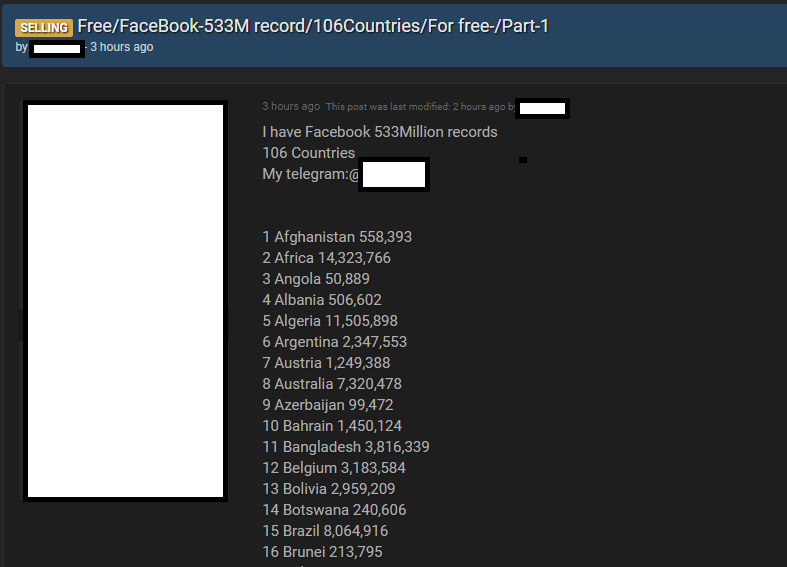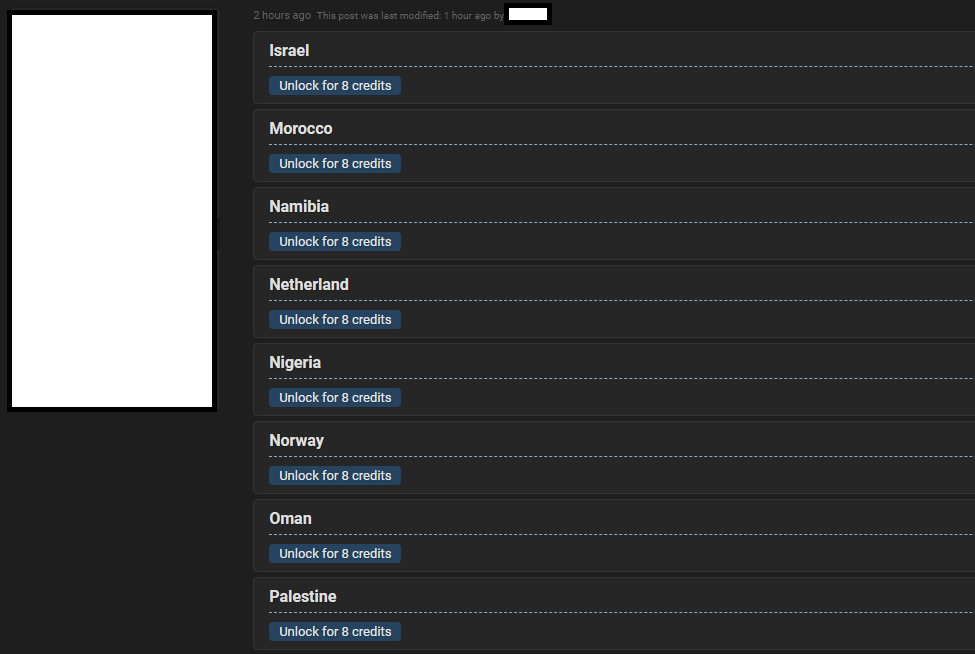FACEBOOK HACKED AGAIN! Yes, that is true. Our beloved social media site was again vulnerable and this time it is even worse. It has been reported that over 500 million users’ details leaked online on hacking forums. Facebook has come forward to lower the magnitude by stating the leaked data are several years old. However, it is clear that Facebook, for all its attempts, is still not able to safeguard users’ data against determined hackers online.
A huge trove of data was leaked on online forums. Among them were phone numbers and personal information of half a billion Facebook users which were probably stolen online. It is one of the largest security infiltrations into social media platforms to date. Business Insider has reported the last Saturday.
The huge trove of data was uploaded to an online forum used by hackers. It reportedly includes Facebook users’ email addresses and personal information.
Check out: Influencer Marketing in Nepal
Alon Gal, CTO of Hudson Rock, a cybercrime intelligence firm was first to discover this large-scale leak on Saturday. He posted the data breach on Saturday morning on social media on Twitter and LinkedIn. He also shared screenshots showing the 533M records solicited by a Telegram user.
“All 533,000,000 Facebook records were just leaked for free,” he wrote in a tweet. “This means that if you have a Facebook account, it is extremely likely the phone number used for that account was leaked.” He tweeted. with the tweet, he shared the following screenshots as proofs of breach into Facebook servers.
It Is Not The First Time Though!
The California-based social networking giant has overseen many security mishaps over the years. In 2019,
In 2019, it was discovered that 267 million Facebook users’ phone numbers, names, and user IDs were exposed on hacking forums. Similarly, more than 540 million Facebook users’ records such as comments and likes were discovered on Amazon’s cloud servers.
Not just Facebook’s security features were exposed when its founder Mark Zuckerberg found his own account breached. Apparently, a security researcher Khalil Shreateh tried to convey the glitch on Facebook that allowed anyone to post on a stranger’s wall but to no avail. Later, he proved the shortcoming by hacking the timeline of the CEO’s profile and posting it on Zuckerberg’s wall.
Read: Udaypur’s Baiabu Rai Becomes Facebook’s Senior Software Engineer
Facebook’s Response
Facebook has always remained adamant about its commitment to users’ privacy and user data protection. It has also initiated the Bug Bounty program to explore any glitches within its systems. However, time and again, its servers have been attacked and data were stolen.
Responding to the latest fiasco, Facebook has acknowledged the security flaws that led to the hacking in an email. But it said the data were less relevant because they were old. “This is old data that was previously reported on in 2019,” a Facebook spokesperson said. “We found and fixed this issue in August 2019.”
However, Alon Gal, CTO of Hudson Rock, is not convinced with Facebook’s soft response. He tweeted, “It was severely under-reported and today the database became much more worrisome,” adding further, he stated that, “Bad actors will certainly use the information for social engineering, scamming, hacking and marketing,”
In this latest breach into Facebook, users’ phone number, full name, location, birthdate, email address, and relationship status are among the details leaked.
Don’t forget to read: Donald Trump’s Twitter Ban is Permanent: Twitter’s Finance Chief
A Food For Thought
Whether it is a news portal or a social media site, nothing on the internet is safe. There are hackers teasing into the system and trying to retrieve valuable user data round the clock; be it for mere sport or notorious purposes. Therefore, it is imperative that we stay wise about what information we keep on the internet. Once, our accounts are hacked, it goes to the strangers’ we could be subject to violation. This is why it is our responsibility to be cautious about our activities in the virtual world.






